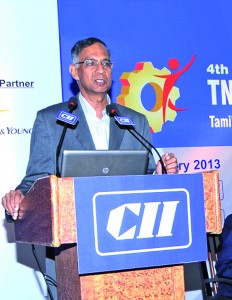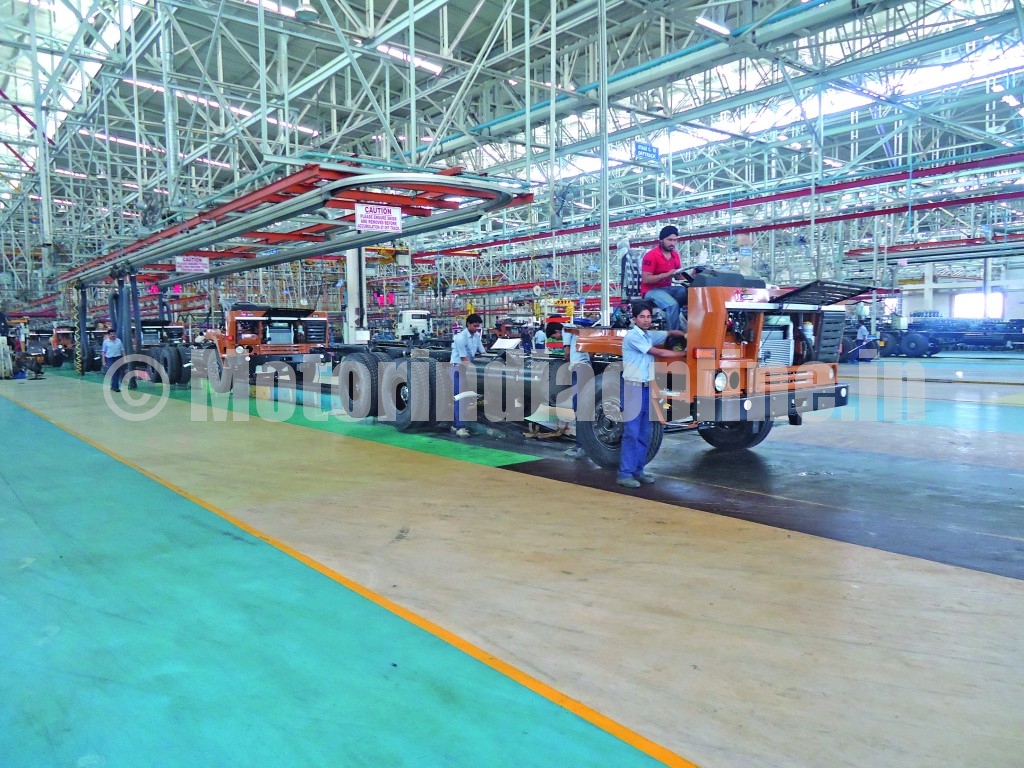
Skill development in the manufacturing sector has become both a major challenge and an opportunity today. Since Indian automobile manufacturers are setting up new plants at different locations, getting the right employee skill is really tough. However, the leading commercial vehicle manufacturer Ashok Leyland Ltd. has become a role model by successfully developing the most appropriate skilled labour force for its Pantnagar plant which is manufacturing a variety of new vehicle models.
Highlighting this key company initiative in his keynote address at CII’s 4th edition of TN Manufacturing Summit with the theme “Tamil Nadu 2023 – Driving Growth through Manufacturing” in Chennai, Mr. R. Seshasayee, Executive Vice Chairman, Ashok Leyland Ltd., and past President, CII, said the company set up the Pantnagar facility four years ago by taking full advantage of the various tax benefits offered by the State. Since the company was not interested in migration of labour force from other production centres to Pantnagar, it started offering full-scale training to the local manpower with a minimum qualification of +12, in co-operation with NTTF, the well-known training institute in the country. This special effort paid rich dividends, and the company thus was able not only to get a well-trained employee force but also to retain it with attractive pay and allowances. Incidentally, women constitute 30 per cent of the present workforce at Pantnagar.
Mr. Seshasayee also suggested the ‘earn while learn’ concept which has already become very popular in developed countries like Germany, Sweden, etc.
Referring to Tamil Nadu’s unique strength in automotive manufacturing, he pointed out that though Chennai was not having any major player in the automobile industry when Ashok Leyland decided to set up operations there in 1948, it was the special initiative taken by the late Jawaharlal Nehru as Prime Minister that helped attract good investments in the field from industry leaders like the TVS Group, Amalgamations, etc.
However, Mr. Seshasayee expressed himself against the general policy followed during 1970s and 1980s of promoting backward areas development through industrialisation. For, only a city with good infrastructural facilities and trained labour force can ensure better urban development. This has more than been proved by the faster industrialisation of areas like Sriperumbudur as compared to those like Gummidipoondi. For improving the overall urban infrastructure, the country needs at least 300 cities such as Gurgaon which has now emerged a major satellite township with close proximity to big cities.
Earlier, touching on the current downtrend in the economy, Mr. Seshasayee struck an optimistic note saying that it is time that more investments were pumped into to take the economy forward. With manufacturing getting priority attention, India should never remain merely a service-driven economy.
The full-day session witnessed delivery of enlightened speeches by top industry experts from different fields.
